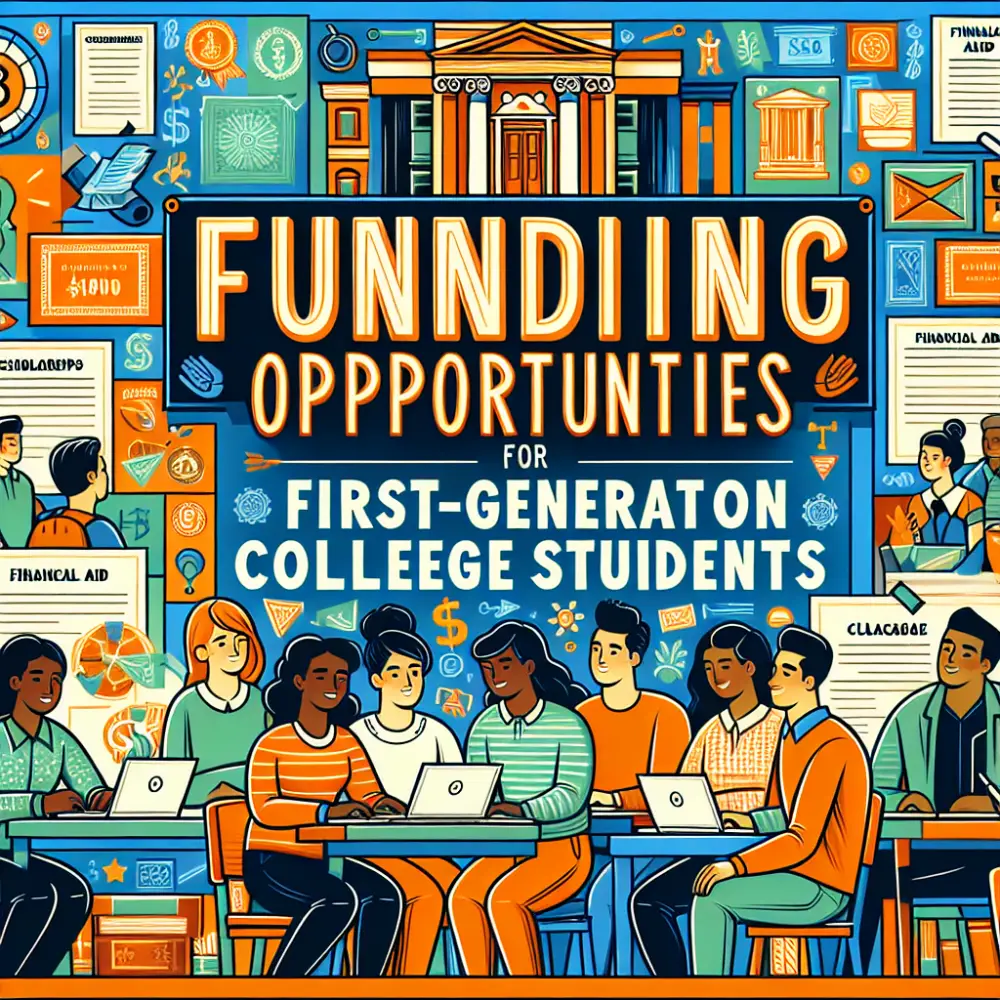
Are you a first-generation college student looking for funding opportunities to help support your educational journey? You’re not alone. Many first-gen students face unique challenges when it comes to financing their higher education. The good news is that there are numerous scholarships, grants, and other financial aid options available specifically for first-generation college students.
In this comprehensive guide, we will explore various funding opportunities that can help alleviate the financial burden of pursuing a college degree. From scholarships provided by non-profit organizations to government grants designed to support low-income students, there are plenty of resources out there to help you achieve your academic goals.
Scholarships for First-Generation College Students
One of the best ways for first-generation college students to secure funding for their education is through scholarships. These are awards that do not need to be repaid and can come from a variety of sources, including private organizations, universities, and foundations. Many scholarships are specifically targeted towards underrepresented populations like first-gen students.
Some popular scholarships for first-generation college students include the Coca-Cola First Generation Scholarship, the Gates Millennium Scholars Program, and the Dell Scholars Program. These scholarships often have specific eligibility requirements based on factors like GPA, community service involvement, and financial need. Be sure to carefully review the qualifications before applying.
Grants for First-Generation College Students
In addition to scholarships, grants are another form of financial aid that can help first-gen students cover the cost of tuition, books, and other expenses associated with attending college. Grants are typically need-based and do not require repayment. The Federal Pell Grant is one example of a grant program available to low-income students.
There are also state-specific grant programs that provide financial assistance to first-generation college students. For example, the California Student Aid Commission offers the Cal Grant program which helps eligible California residents pay for college expenses at qualifying schools in the state. Check with your school’s financial aid office or search online databases to find grants you may be eligible for.
Work-Study Programs
Work-study programs are another option for first-gen college students looking to fund their education. These programs provide part-time employment opportunities on campus or with approved off-campus employers. Students typically work a set number of hours per week and earn a paycheck that can be used towards educational expenses.
To participate in a work-study program, you must demonstrate financial need by completing the Free Application for Federal Student Aid (FAFSA). Once approved for work-study, you will be matched with a job that aligns with your skills and interests. This can be a great way to gain valuable work experience while earning money towards your degree.
Support Services for First-Generation College Students
In addition to financial aid opportunities, many colleges and universities offer support services specifically tailored to meet the needs of first-generation college students. These services may include academic advising, mentorship programs, tutoring services, and workshops on topics like time management and study skills.
These support services can help first-gen students navigate the challenges of higher education more effectively and improve their chances of academic success. Be sure to take advantage of these resources on your campus – they are there to help you thrive in your college journey!
Tips for Maximizing Funding Opportunities
When it comes to securing funding as a first-generation college student, it’s important to be proactive and diligent in your search for opportunities. Here are some tips for maximizing your chances of receiving financial aid:
- Start researching scholarship and grant opportunities early in your high school career.
- Complete the FAFSA every year to determine your eligibility for federal aid programs.
- Reach out to your school’s financial aid office for guidance on available resources.
- Create a budget plan to manage your finances wisely throughout your college journey.
- Maintain good academic standing in order to qualify for merit-based scholarships.
Frequently Asked Questions (FAQ)
Q: Can I apply for multiple scholarships at once?
A: Yes! It’s encouraged to apply for as many scholarships as you qualify for in order to maximize your chances of receiving funding.
Q: Do I have to repay grants or scholarships?
A: No! Grants and scholarships do not need to be repaid – they are considered gifts towards your educational expenses.
Q: How can I find out about more funding opportunities?
A: Research online databases like Fastweb or Scholarships.com, consult with your school’s financial aid office, and reach out directly to scholarship providers.
Q: What should I do if I am unsure about my eligibility?
A: Contact scholarship providers or grant administrators directly with any questions about eligibility criteria – they will be able to provide you with guidance.
.


















